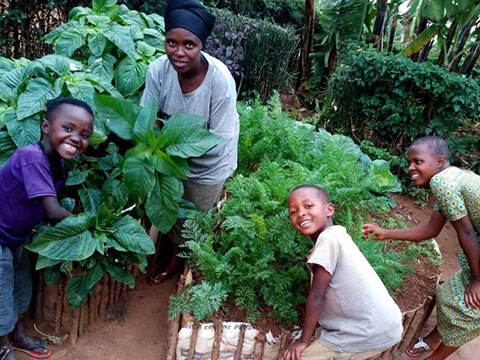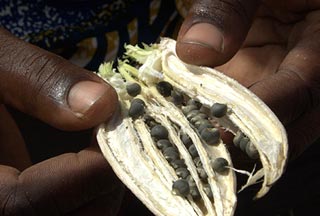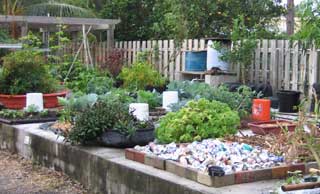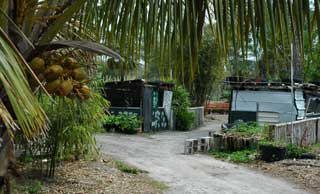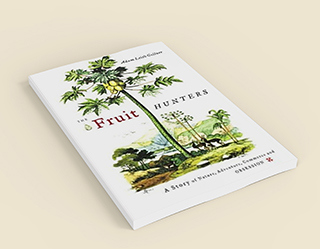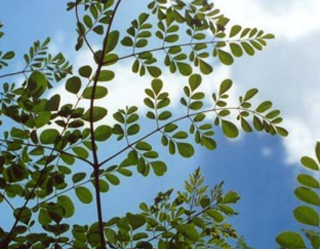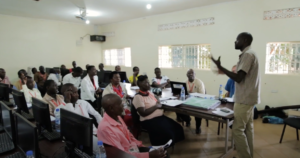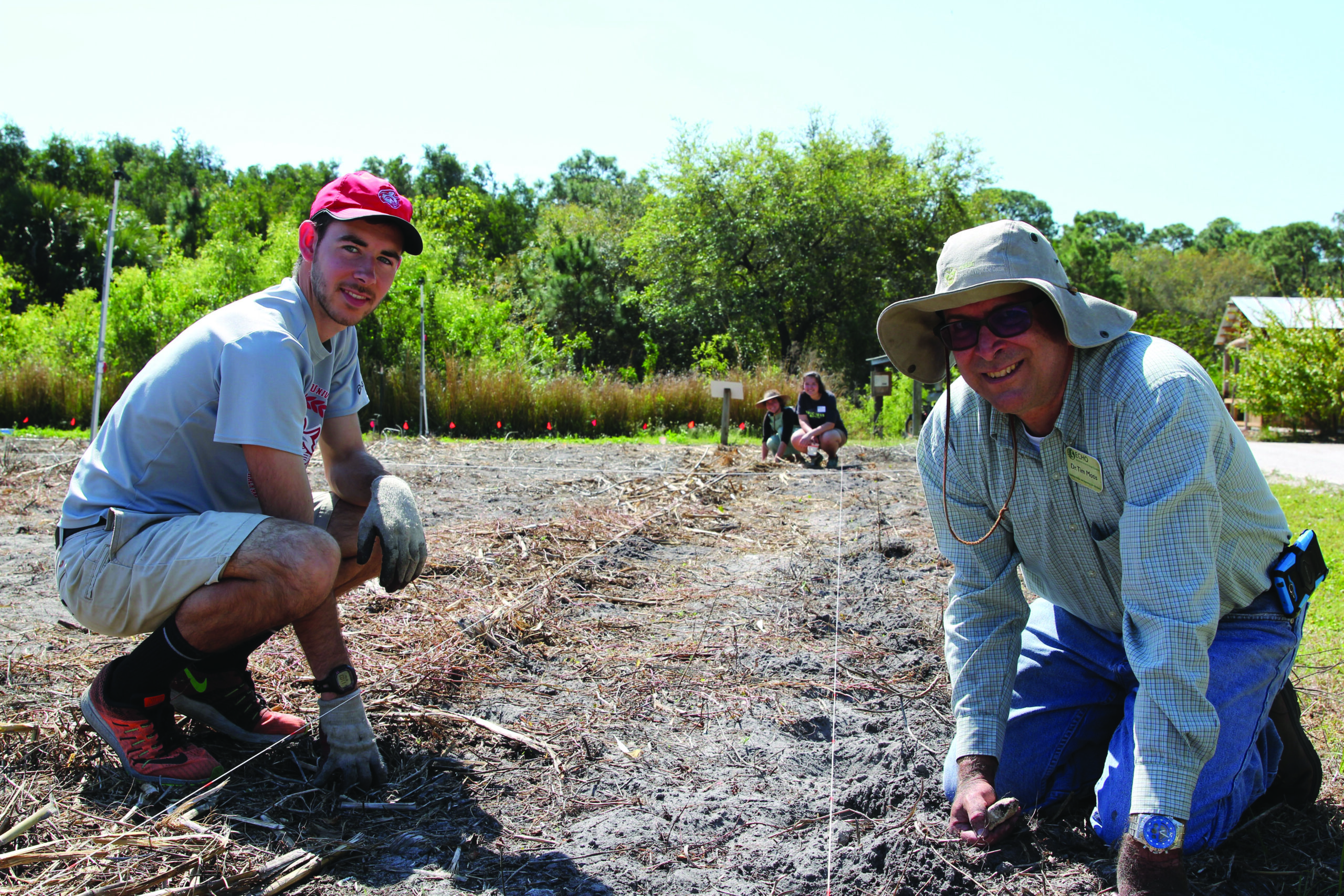Dr. Tim Motis began working for ECHO in 2003 and has greatly contributed to ECHOcommunity.org’s rich knowledge-collection and global dissemination of information to smallholder farmers, missionaries, and development workers.
Growing up as a missionary kid in Liberia, Ethiopia, and Eritrea, Tim was always in the garden. His love for plants in early childhood led him to select horticulture as his major at South Dakota State University. Then, just like the flowers in springtime, his desire for missions blossomed his sophomore year: “I didn’t want to go into missions just because that’s what my parents did. I wanted it to be my own calling. Once I got the bug, I couldn’t stop thinking about it.” Little did he know how God would use him in a different kind of mission field.
In 1996, in between his master’s and PhD, he spent time in Ethiopia with the International Mission Board’s Journeyman Program as a worker with tree nurseries and vegetable demonstration sites. That was where he heard about ECHO. He would receive ECHO Development Notes (EDNs) — informational agricultural articles — in the mail and even buy some books from the ECHO bookstore. He proudly pointed to a limited-edition hardcover book on his bookshelf titled “Fruits of Warm Climates.”
For Motis, “it’s very rewarding to be able to reach a lot of people through writing.” Indeed, his expertise in answering specific questions from smallholder farmers, international development workers, and non-profit organizations has been a great benefit to ECHO’s network. “ECHO has found over the years that a lot of information, even if it is targeted to a specific region can still benefit a broader audience and concepts are often broadly applicable even if some practices are just by nature better suited to one region than another.” This allows him and his team to multiply their impact.
When receiving inquiries online, he enjoys questions about Green Manure Cover Crops (GMCCs) the most. Some examples include, “Can I plant cowpea at the same time as maize?” or “How should I integrate legumes into another crop like corn?” To answer these questions, he uses the collective knowledge from ECHO’s network, but also incorporates his own research into the equation to better inform the audience. He says, “It’s rewarding that we’re not repeating what’s in the literature but we’re finding things out ourselves.” It is a constant flow of, ideas and innovations between people that keep his role and ECHOcommunity alive.
With a learner’s posture, they realized they needed a low-cost unit of measurement with which the farmers could measure their crop yield. They discovered that farmers were already using a “kigo” – a unit of measurement that was measured by a bag of maize kernels and then converted to grams. “Our research trials had progressed from being on-site trials to doing trials in the community on farmers’ fields, visiting contact farmers. That was very rewarding.”
His collaborations are far-reaching but close to home. One of his favorite EDNs was about moringa, where he collaborated with David Strong whose rich experience with moringa-drying in Southeast Asia was invaluable. In EDN #163 “Harvesting and Drying Considerations for Quality Moringa Leaf Powder,” Dr. Motis experimented to see what the ideal temperature would be for drying moringa. In addition to weaving in his own personal research, he also learned easier ways to dry moringa for best nutrition and quality. The techniques he learned from David he has used in ECHO’s Get-Into-Gardening (GIG) and Tropical Agricultural Development (TAD) courses.

“I have a great team,” he shares, “and there are always people who can bring in new vision to the work, new ideas.” The hard work and dedication of his team including Stacy Swartz paid off when one of their articles in conjunction with the ECHO Asia team appeared in the highly-acclaimed scientific journal called “Experimental Agriculture”.
As he reflects on his time at ECHO, some of Dr. Motis’s favorite memories at ECHO are watching interns catch muddy tilapia and help filet the fish at the annual fish harvest. Once, he was the lead investigator on a research project in South Africa. There, he and the team had to traverse a steep mountainside: “I vowed I would never be the driver up a mountain that steep, but that time I was the only one on the insurance…so I drove.” He also went to an International Horticulture Congress meeting in Istanbul, Turkey and attended a Moringa Symposium in the Philippines where he was able to share the work of ECHO and invite people into the network.
God has used Dr. Motis’ wide range of life and career experiences to bring him to a greater understanding of “faithfulness in small things [knowing that] the bigger things will work out.” Like the mountain he faced in South Africa, so too has he faced big things in his career path, but the Lord has blessed them — one cup of coffee at a time. He has also blessed the next generation of hunger-fighters by writing reference letters for scores of interns. He finds it rewarding to see them live out God’s call for their life.
Excited about the years to come and ECHO’s Strategic Framework, Dr. Motis comments “I like the strategic framework’s idea of focusing on community seed banks, and especially strengthening the global church and agriculture. Our leaders always say, ‘Serve the network, build the network,’ and that reminds me of how we can also ‘serve the Church, build the Church’ through agriculture by meeting hunger needs as agents of restoration.” Indeed, ECHO has used his words as a mighty platform for which people’s voices can be heard around the world. Network members are doing the practices, but he says, “we put words to it.” By doing so, many lives are changed for the glory of God.
